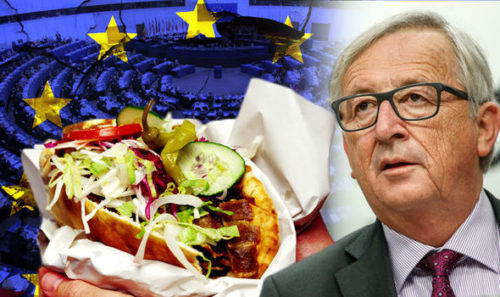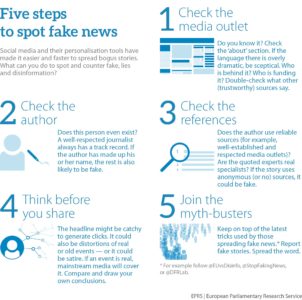I Don’t Wanna Be Sedated
Fries, kebabs and fake news

Source: The Express
I recently stumbled upon a book from a British writer based in Paris, who wrote a fictional novel (but with clear references to reality) about an Englishman working as a parliamentary assistant to a French Member of the European Parliament, during the time frame of the Brexit referendum. As the novel itself would probably not be too exiting for people that are not working in, or are familiar with the environment of the bureaucratic Euro bubble, it had a certain writing style which I liked. Every chapter would start with a quoted headline from the British press, with some of them dating back to the 1990s.
Those headlines were screaming that the EU will restrict, regulate or forbid something that the UK citizens deeply love or often practice. This cacophony of British tabloids towards the EU brought us some of the most memorable news headlines, such as “Up yours, Delors”. When viewing the reasons for Brexit, one should not undermine the role of UK tabloids, which started the anti-EU sentiments much earlier than the emergence of Nigel Farage and his gang of unelectable pub lovers.
When we pick stories for our weekly newsletter, we have a section called Oh My Brussels where mostly comic and bizarre stories end up. Some time ago I stumbled upon an article from some dubious source that the EU will ban fries. Of course, it was not the first nor the last time something like this has surfaced. In my country, we have a saying that the paper can withstand everything. In comparison to that, I cannot find such a suitable saying for the internet. In the fast world of Twitter word-limits and an overdose of information, people mostly don’t bother to read more than the headlines.
Due to that, the EU plans to reduce cancer-causing acrylamide was interpreted by many as a general ban of fries, which is utter nonsense. The story was picked up by well-known anti-EU outlets, ranging from the news outlet of a former Trump advisor to German populist tabloids and state-funded Kremlin media. I was even surprised that some media from my home country, which I considered serious, managed to delude its readers by putting on a completely different headline than the actual context of the article.
The latest craziness came not long ago with news headlines that the EU will ban kebabs, one of the most favourite fast food meals in Europe. As many people can relate to, Saturday nights out often end up at a kebab place. Thus this latest attack on the EU serves as an interesting example of fake news being spread around to underline the notorious populist argument that Brussels is a bureaucratic place that just wants to impose new rules and limit our freedoms. The real deal is that some MEPs are against a Commission proposal, arguing that there is a potential connection between phosphate, used as a food additive in kebabs, with cardiovascular diseases.
However, the European Food Safety Authority (EFSA) so far remains sceptic about it, but needs to re-examine the issue by the end of next year. The MEPs will vote on the Commission proposal at their plenary session next week. In laic words, there is no sign of any EU official banning anything.
To conclude, even these banal examples show that the EU is right to put more effort and funds to combat fake news, lies and disinformation. It is of utmost importance to focus on filtering reliable source, emphasizing the need to fact-check information and to support quality journalism. The EU should not only limit this to its member states, but also potential members where there is a strong presence of tabloidization and anti-EU forces willing to promote lies about the EU which range from Brexit and the Catalan issues to post-night out food. It’s basically junk news discussing junk food.

Source: EP Research Service
